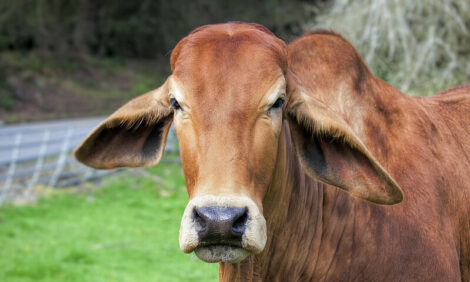



Scottish Farm on Lockdown After BSE Detected
SCOTLAND, UK - A case of bovine spongiform encephalopathy (BSE) or "mad cow disease" was confirmed last week at a farm in Aberdeenshire in northern Scotland.The Scottish government said precautionary restrictions on movement had been put in place at the unnamed farm while investigations take place to find the origin of the outbreak of the disease.
The case was identified as a result of routine testing and meat from the animal did not enter the human food chain.
Fergus Ewing, Scotland's rural economy secretary, said: "While it is important to stress that this is standard procedure until we have a clear understanding of the disease's origin, this is further proof that our surveillance system for detecting this type of disease is working."
Sheila Voas, the government of Scotland's chief veterinary officer, urged farmers with any concerns to "immediately seek veterinary advice".
Voas wrote on social media: "Sad to have confirmed a case of BSE in Aberdeenshire this morning, but good surveillance system is proved to work well. Disappointing news, but not unexpected to have occasional sporadic cases, and no effect on food safety."
First in decade
It is the first case of its kind in Scotland for more than a decade.
Food Standards Scotland has confirmed there is no risk to human health as a result of the isolated case.
Ian McWatt, director of operations at Food Standards Scotland, said: "There are strict controls in place to protect consumers from the risk of BSE, including feed, and removal of the parts of cattle most likely to carry BSE infectivity. Consumers can be reassured that these important protection measures remain in place and that Food Standards Scotland official veterinarians and meat hygiene inspectors working in all abattoirs in Scotland will continue to ensure that, in respect of BSE controls, the safety of consumers remains a priority."
BSE is a fatal brain disease that affects cattle and was first identified in the United Kingdom in the 1980s. Millions of cattle were culled in the 1990s in a bid to eradicate the disease in the nation's herd.
Scotland and Northern Ireland were granted a BSE "low-risk" status by the World Organization for Animal Health in May 2017. England and Wales continue to have a "controlled risk" BSE status.
Andrew McCornick, president of the National Farmers' Union of Scotland, said: "It is disappointing to learn of this BSE case within the Aberdeenshire area. Whilst we lose our negligible risk status, it is not unexpected to see a new case and demonstrates the efficacy of the surveillance measures in place. This simply brings us back in line with the rest of Great Britain, reverting back to where we were 18 months ago."
Earlier this year, China lifted a ban on imports of beef from the United Kingdom that was imposed in the 1990s. The lifting of the ban followed years of site inspections and negotiations at the government level.
TheCattleSite News Desk


